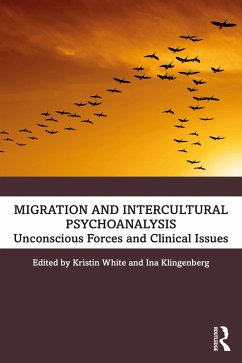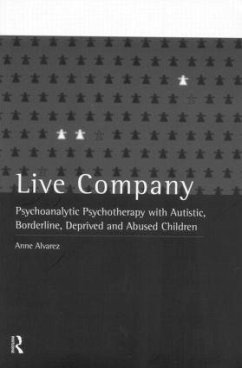
Psychoanalytic Approaches to Forgiveness and Mental Health
Versandkostenfrei!
Versandfertig in 6-10 Tagen
38,99 €
inkl. MwSt.

PAYBACK Punkte
19 °P sammeln!
Psychoanalytic Approaches to Forgiveness and Mental Health considers the role of forgiveness in mental life, concerning both forgiving and being forgiven.Each chapter addresses concepts including superego, repetition compulsion, enactment, and notions such as sacrifice, penance, justification, absolution, and contrition. The contributors consider both their professional and clinical experience and their ethical, cultural, or philosophical background when considering aspects of forgiveness and its impact on clinical practice. The book is an attempt to open the subject of forgiveness, not to rea...
Psychoanalytic Approaches to Forgiveness and Mental Health considers the role of forgiveness in mental life, concerning both forgiving and being forgiven.
Each chapter addresses concepts including superego, repetition compulsion, enactment, and notions such as sacrifice, penance, justification, absolution, and contrition. The contributors consider both their professional and clinical experience and their ethical, cultural, or philosophical background when considering aspects of forgiveness and its impact on clinical practice. The book is an attempt to open the subject of forgiveness, not to reach ethical conclusions nor to formulate pious psychological behavioural axioms. It also considers the weight of feeling unforgiven and of holding the lifelong resentment or vengeful wishes of the unforgiving.
Psychoanalytic Approaches to Forgiveness and Mental Health will be key reading for psychoanalysts and psychotherapists in practice and in training and for other professionals interested in the role of forgiveness in mental life. It will also be of interest to academics and students of psychoanalytic studies, philosophy and spirituality.
Each chapter addresses concepts including superego, repetition compulsion, enactment, and notions such as sacrifice, penance, justification, absolution, and contrition. The contributors consider both their professional and clinical experience and their ethical, cultural, or philosophical background when considering aspects of forgiveness and its impact on clinical practice. The book is an attempt to open the subject of forgiveness, not to reach ethical conclusions nor to formulate pious psychological behavioural axioms. It also considers the weight of feeling unforgiven and of holding the lifelong resentment or vengeful wishes of the unforgiving.
Psychoanalytic Approaches to Forgiveness and Mental Health will be key reading for psychoanalysts and psychotherapists in practice and in training and for other professionals interested in the role of forgiveness in mental life. It will also be of interest to academics and students of psychoanalytic studies, philosophy and spirituality.














